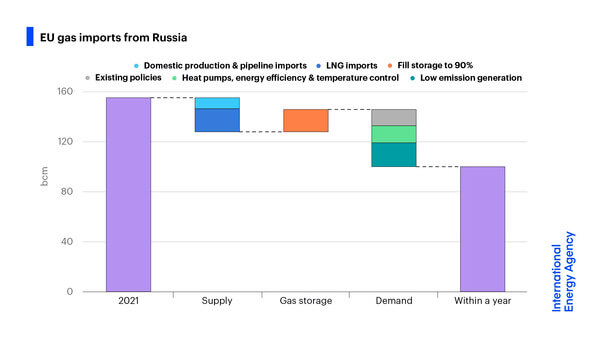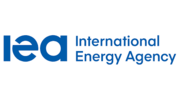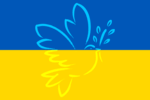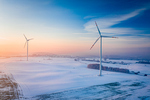News Release from International Energy Agency (IEA)
Wind Industry Profile of
How Europe can cut natural gas imports from Russia significantly within a year
The European Union could reduce its imports of Russian natural gas by more than one-third within a year through a combination of measures that would be consistent with the European Green Deal and support energy security and affordability, new IEA analysis shows.
Europe’s reliance on imported natural gas from Russia has again been thrown into sharp relief by Russia’s invasion of Ukraine. The IEA’s 10-Point Plan to Reduce the European Union’s Reliance on Russian Natural Gas includes a range of complementary actions that can be taken in the coming months, such as turning more to other suppliers, drawing on other energy sources and accelerating efforts to provide consumers, businesses and industry with the means to use clean and efficient alternatives to natural gas. The proposed measures are fully consistent with the EU’s European Green Deal and its Fit for 55 package, paving the way for further emissions reductions in the years to come.
In 2021, the European Union imported 155 billion cubic metres of natural gas from Russia, accounting for around 45% of EU gas imports and close to 40% of its total gas consumption. Progress towards Europe’s net zero ambitions will bring down its use and imports of gas over time, but today’s crisis raises the specific question about imports from Russia and what more can be done in the immediate future to bring them down.
“Nobody is under any illusions anymore. Russia’s use of its natural gas resources as an economic and political weapon show Europe needs to act quickly to be ready to face considerable uncertainty over Russian gas supplies next winter,” said IEA Executive Director Fatih Birol. “The IEA’s 10-Point Plan provides practical steps to cut Europe’s reliance on Russian gas imports by over a third within a year while supporting the shift to clean energy in a secure and affordable way. Europe needs to rapidly reduce the dominant role of Russia in its energy markets and ramp up the alternatives as quickly as possible.”
Barbara Pompili, Minister for Ecological Transition of France, which currently holds the EU Presidency, said: “More than ever, getting rid of Russian fossil fuels and of fossil fuels in general, is essential. What is at stake is both the need to accelerate the fight against climate change, and, as we can see now, the short-term energy security of the European continent. The 10-Point Plan proposed by the IEA today will enrich our thinking. We will look at these proposals in detail, as the French President announced yesterday a broad resilience plan for France. As part of this plan, my administration is working on a set of measures to ensure the robustness of our energy system, which will certainly echo the propositions of the IEA."
Kadri Simson, European Commissioner for Energy, said: “Reducing our dependence on Russian gas is a strategic imperative for the European Union. In recent years, we have already significantly diversified our supply, building LNG terminals and new interconnectors. But Russia’s attack on Ukraine is a watershed moment. Next week, the Commission will propose a pathway for Europe to become independent from Russian gas as soon as possible. The IEA’s analysis outlines a number of concrete steps we can take towards that goal. It is a very timely and valuable contribution to our work.”
The key actions recommended in the IEA’s 10-Point Plan include not signing any new gas contracts with Russia; maximising gas supplies from other sources; accelerating the deployment of solar and wind; making the most of existing low emissions energy sources, such as nuclear and renewables; and ramping up energy efficiency measures in homes and businesses.
Taken together, these steps could reduce the European Union’s imports of Russian gas by more than 50 billion cubic metres, or over one-third, within a year, the IEA estimates. This takes into account the need for additional refilling of European gas storage facilities in 2022. Many of the actions recommended in the plan – including stepping up energy efficiency measures, accelerating renewable deployment and expanding low emissions sources of power system flexibility – are key elements of the IEA’s Roadmap to Net Zero by 2050.
The IEA analysis notes that other avenues are available to the EU if it wishes or needs to reduce reliance on Russian gas even more quickly – but with significant trade-offs. The major near-term option would involve switching away from gas consumption in the power sector via increased use of Europe’s coal-fired fleet or by using alternative fuels, such as oil, within existing gas-fired power plants.
Given that these alternatives to gas use are not aligned with the European Green Deal, they are not included in the 10-Point Plan described above. They may also be costly from an economic point of view. However, they could displace large volumes of gas relatively quickly. If the fuel-switching option were to be fully exercised in addition to the complete implementation of the 10-Point Plan described above, it would result in a total annual reduction in EU imports of gas from Russia of more than 80 billion cubic metres, or over half, while still resulting in a modest decline in overall emissions.
Reducing reliance on Russian gas will not be simple for the EU, requiring a concerted and sustained policy effort across multiple sectors, alongside strong international dialogue on energy markets and security. There are multiple links between Europe’s policy choices and broader global market balances. Strengthened international collaboration with alternative pipeline and LNG exporters – and with other major gas importers and consumers – will be critical. Clear communication between governments, industry and consumers is also an essential element for successful implementation. As the world’s leading energy authority, the IEA will continue to serve as a focal point for global dialogue on how to ensure a secure and sustainable energy future.
IEA provides 10-Point Plan to European Union for reducing reliance on Russian supplies by over a third while supporting European Green Deal, with emergency options to go further

- Do not sign any new gas supply contracts with Russia. [Impact: Enables greater diversification of supply this year and beyond]
- Replace Russian supplies with gas from alternative sources [Impact: Increases non-Russian gas supply by around 30 billion cubic metres within a year]
- Introduce minimum gas storage obligations [Impact: Enhances resilience of the gas system by next winter]
- Accelerate the deployment of new wind and solar projects [Impact: Reduces gas use by 6 billion cubic metres within a year]
- Maximise power generation from bioenergy and nuclear [Impact: Reduces gas use by 13 billion cubic metres within a year]
- Enact short-term tax measures on windfall profits to shelter vulnerable electricity consumers from high prices [Impact: Cuts energy bills even when gas prices remain high]
- Speed up the replacement of gas boilers with heat pumps [Impact: Reduces gas use by an additional 2 billion cubic metres within a year]
- Accelerate energy efficiency improvements in buildings and industry [Impact: Reduces gas use by close to 2 billion cubic metres within a year]
- Encourage a temporary thermostat reduction of 1 °C by consumers [Impact: Reduces gas use by some 10 billion cubic metres within a year]
- Step up efforts to diversify and decarbonise sources of power system flexibility [Impact: Loosens the strong links between gas supply and Europe’s electricity security]
- Source:
- IEA
- Author:
- Press Office
- Link:
- www.iea.org/...
- Keywords:
- IEA, Russia, Ukraine, war, energy, import, gas, reliance, supply, European Green Deal, emergency, analysis, points





















